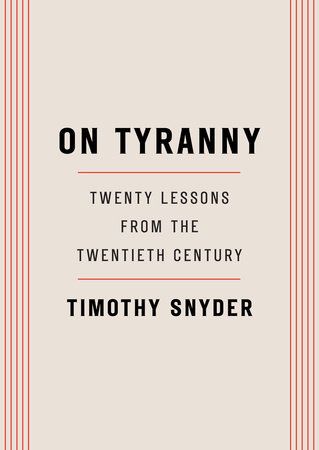Subtler than jailing opponents, modern autocrats use "rule by law" to criminalize dissent, imposing regulations to throttle critics' ability to operate legally:
- "Foreign agent" laws to stigmatize activists and NGOs as suspect outsiders
- "Extremism" and "anti-terrorism" designations to ban opposition groups
- Politicized tax, libel and "morality" police to harass newsrooms and campuses
- Restrictions on NGO funding and activity to cut off resources
- Pliable prosecutors, judges and bureaucrats to enforce double standards
- State media to trumpet supposed financial or sexual misconduct
By imposing a presumption of guilt and denying the persecuted any viable defense, such systems strangle opposition in a noose of quasi-legal restraints.
Section: 1, Chapter: 5
Unlike clumsy and unconvincing Soviet propaganda, modern Russian messaging aims not to inspire but to confuse, distract, and demoralize. Common themes:
- "Whataboutism" that deflects criticism by accusing the West of hypocrisy
- Amplifying voices that smear liberal societies as decadent and failing
- Portraying Russia as the defender of "traditional values" against liberal excess
Russians are fed a diet of nationalist triumphalism while "news" from democracies fixates on dysfunction, elite corruption, culture-war controversy, or civilizational decline.
Section: 1, Chapter: 3
As deputy mayor of St. Petersburg in the early 1990s, Vladimir Putin oversaw schemes to steal city funds and launder money through shell companies in Europe, enabled by Western banks and lawyers. In one case, his partners registered the St. Petersburg Real Estate Holding Company in Germany, took it public, then used it to launder funds before German police finally raided it in 2003.
The political system that became Putinism emerged from the nexus of the KGB's experience with clandestine finance and the amorality of the international business community. Even as Western leaders preached "rule of law" to Russia, Western enablers helped build the opposite.
Section: 1, Chapter: 1
Compared to 20th century total censorship and mass violence, 21st century autocrats calibrate subtler ways to tarnish and intimidate critics, combining:
- Malign prosecution and stripped credentials to legally sideline opponents
- Manufactured scandals spread online to mar reputations
- Conspiracy theories alleging hidden foreign backing to undermine legitimacy
- Troll and bot armies that drown out or distort opposition messages
- Blackmail and threats to turn even family and friends into liabilities
The public, disillusioned, is left seeing honest brokers as no better than the ruling cabal.
Section: 1, Chapter: 5
From Prague to Kyiv to Caracas, dissidents have systematically employed non-violent pressure to challenge autocrats' monopoly on power:
- Symbolic resistance - slogans, colors, slogans that expose as choice what was considered necessity
- Coalition-building - linking disparate social classes around shared grievances and alternate national visions
- Dispersed leadership - making movements resilient to decapitation
- Exposing regime violence - shaming authorities and shifting enforcers' loyalty
- Seizing public spaces - denying regime's ability to dominate physical and information environment
Section: 1, Chapter: 5
America's founding story is deeply intertwined with the age of imperial mobility - the centuries when Europeans, powered by technological and immunological advantages, could conquer and expand globally. Key examples:
- The American Revolutionary War emerged from tensions in the British Empire after the Seven Years' War
- After independence, America expanded rapidly by seizing land from Natives and Mexico, taking the place of European imperial powers
- Southern plantation owners' wealth and political power relied on enslaved African labor
- The Founders had tremendous mobility to settle newly conquered lands, at the expense of Native displacement
Section: 1, Chapter: 3
The idea of negative freedom - merely getting government out of the way - is incoherent because it rejects the solidarity that makes freedom possible. Consider:
- Many "negative freedom" advocates want to defund public education, making it harder for the next generation to develop capabilities for freedom
- Adherents often reject any redistribution, allowing oligarchic concentrations of wealth to limit most people's economic freedom
- Defenders frequently deny the existence of systemic racism, dismissing the perspectives and experiences of minority groups
In each case, negative freedom assumes that one person or group's freedom is independent of everyone else's. But in reality, we can only be free together in solidarity. Freedom is a collective achievement of humanity that requires ongoing collective effort to sustain.
Section: 1, Chapter: 5
In his famous 1978 essay "The Power of the Powerless," Czech dissident Václav Havel demonstrates how ordinary people can resist a system of oppression through small acts of truth. His example:
A greengrocer hangs a sign in his shop window proclaiming "Workers of the world, unite!" He doesn't believe the slogan, but hangs it to avoid trouble. One day, he stops hanging the sign - a tiny act of defiance. By rejecting the ritual and "living in truth," he exposes and threatens the whole oppressive system.
For Havel, the powerless greengrocer shows that we always have a choice, however small, to act freely. And in those choices lies the power to create change.
Section: 1, Chapter: 2
Elites increasingly rely on "sadopopulism" - stoking division and resentment between groups - to protect their wealth and power while immobilizing everyone else. Key tactics:
- Generating a sense of victimhood among a dominant group (whites, men, natives, etc)
- Directing attention and blame toward a scapegoated group (immigrants, minorities, the poor, etc)
- Undermining social programs by framing them as unfairly aiding the scapegoated group
- Promising that the dominant group will maintain relative status over the scapegoated group
Sadopopulism encourages people to tolerate an unfair status quo as long as they can take comfort that others are hurting more. It is an essential tool for maintaining societies with imperially derived concentrations of wealth in a postimperial age.
Section: 1, Chapter: 3
Unpredictability, the second form of freedom, emerges when sovereign individuals make choices based on their own unique combination of values. Key points:
- Values exist in a "fifth dimension" with its own logic that can seep into our world
- As we choose values over time, we gain the capacity to combine them in new ways
- Every sovereign person constantly faces choices between values in their own unique circumstances
- When sovereign people interact, they generate societywide unpredictability
This human unpredictability keeps us free from those who would oppress us by making us predictable. "Free people are predictable to themselves but unpredictable to authorities and machines."
Section: 1, Chapter: 2
When powerful oligarchs claim "free speech" to defend their ability to spread disinformation, they are abusing the concept to protect their power. Three key reasons:
- Oligarchs face no personal risk for their speech - they are not critiquing the powerful but embodying power. Free speech exists to protect the vulnerable truth-teller, not the powerful liar.
- Oligarchic speech is often not done by an individual whose body is on the line, but by untraceable networks of anonymous entities and bots. Free speech is for protecting real humans.
- Powerful interests spreading lies through media they control is not "speaking truth to power" but "the powerful suppressing truth." The point of free speech is to allow criticism of unaccountable authority.
Section: 1, Chapter: 4
The rise of American mass incarceration in the late 20th century created a new system of racial control that severely limits social mobility. Consider:
- The US imprisons over 2 million people, the most in the world, disproportionately Black men
- 1 in 3 Black men born in 2001 can expect to be imprisoned, vs 1 in 17 white men
- Spending time in prison severely limits employment, housing, education, and voting rights
Several of the author's incarcerated students liken the "the cell inside" (prison) to "the cell outside" (their home communities) in terms of lack of mobility. Mass incarceration as a deliberate system of racial and class immobilization is incompatible with freedom.
Section: 1, Chapter: 3
Powerful companies, especially in fossil fuels, are using their wealth to prevent society from enacting the changes we need to expand mobility for the next generation.
Climate change affects the poor and people of color first - overcoming the selfish escapism of fossil oligarchs and building a sustainable future is a prerequisite for freedom.
Section: 1, Chapter: 3
In August 1978, Czech dissidents including Václav Havel hiked to the Polish border for an unplanned meeting with Polish dissidents, where they built a fire, drank vodka and talked. That encounter spurred Havel to write his influential essay "The Power of the Powerless."
Havel was inspired to political action years earlier after the trial of an underground rock band, the Plastic People of the Universe. The Plastic People covering the Velvet Underground connected Havel's thought to Lou Reed, Andy Warhol, and Warhol's Ruthenian immigrant roots.
These webs of unpredictable influence - stretching from Czechoslovakia to Poland to New York City - shaped Havel's key role in the Velvet Revolution. Preserving unpredictability allows such connections and innovations to thrive.
Section: 1, Chapter: 2
For democracy to function, we need more than individual freedom of speech - we need institutions that make facts available to all and give factual speech consequence. Some examples:
- A free press with legal protections and a culture of journalistic ethics
- Independent universities where scholarship can critique power
- Public schools that teach media literacy and critical thinkingLibraries that provide access to reliable informationWhistleblower protections and freedom of information lawsPenalties for fraud, false advertising and libel
Democracy is a system for determining and acting on facts collectively. It cannot function if oligarchs and officials can lie with impunity.
Section: 1, Chapter: 4
Since Roe v Wade was overturned in 2022, many states have enacted laws severely restricting or banning abortion. Some grant embryos/fetuses full legal personhood. This has created confusion and fear around miscarriage management, as the same procedures and medications are used for both miscarriage and elective abortion.
Particularly in communities of color, where medical mistrust due to racism is already high, this could lead to devastating public health impacts as pregnant people avoid care. Some may even be prosecuted for adverse outcomes like stillbirth, a return to draconian policing of pregnancy.
Section: 2, Chapter: 7
"Politicians without medical expertise are setting unworkable standards that put pregnant people in danger."
Section: 3, Chapter: 10
The anti-abortion movement has masterfully employed fetal imagery to further its cause since the 1980s. Fetal development is depicted as a seamless journey from conception to cherubic newborn. The fetus is shown as an independent being, with the woman's body erased. The humanity of the fetus is highlighted or downplayed as needed for maximum emotional impact.
The overall effect has been to change hearts and minds on fetal personhood. This makes sense, as the authors note, "Frequency of language use and imagery matters. The more frequent the language use or imagery, the more strengthening occurs." The fetus is now a symbol more than a biological reality.
Section: 1, Chapter: 5
In the 1960s and 1970s, a new strain of liberalism emerged in response to the environmental devastation caused by unchecked growth and development. This wasn't merely a conservative reaction - it was led by progressives who witnessed the destruction of natural landscapes, polluted air and water, and bulldozed communities.
In May 1964, President Johnson warned, 'The catalog of ills is long: there is the decay of the centers and the despoiling of the suburbs... Open land is vanishing and old landmarks are violated.'
This environmental consciousness led to a wave of legislation between 1966 and 1973 that created new barriers to development: the National Historic Preservation Act, the Department of Transportation Act, the National Environmental Policy Act, the Clean Air Act, and many others. These laws allowed citizens to sue the government to stop harmful projects, but they eventually became tools that could block almost any new development.
Section: 1, Chapter: 1
Liberal policymaking often suffers from trying to achieve too many worthy goals simultaneously, making it difficult to accomplish any of them effectively. This 'everything-bagel liberalism' adds requirements and standards that each seem reasonable but collectively make projects unworkable.
For example, the 2023 Notice of Funding Opportunity for semiconductor manufacturing asked applicants to prepare 'an equity strategy... to create equitable work force pathways for economically disadvantaged individuals,' develop plans 'to include women and other economically disadvantaged individuals in the construction industry,' provide 'access to child care for facility and construction workers,' and detail how they would include minority-, veteran-, and female-owned businesses in their supply chain.
While each goal is worthy, collectively they create complexity that can delay or derail vital projects. Effective policymaking requires prioritizing what matters most and being willing to make strategic trade-offs.
Section: 1, Chapter: 3
American politics undergoes fundamental transformations roughly once every 30-40 years. Historian Gary Gerstle calls these 'political orders' - constellations of ideologies, policies, and constituencies that shape politics beyond typical election cycles.
The New Deal order (1930s-1970s) featured government actively managing the economy and protecting workers. The neoliberal order (1970s-2010s) emphasized individual freedom and market solutions. Both represented points of agreement between parties despite their many disagreements.
Today, we appear to be in a transition between political orders. The financial crisis of 2008, the climate emergency, the failures of globalization, the COVID pandemic, and the affordability crisis have all undermined confidence in the neoliberal framework. Both parties are rethinking core assumptions about trade, industrial policy, and the role of government in the economy.
This transition creates an opportunity for a new politics of abundance that transcends traditional left-right divides - one focused on building what we need rather than restricting what we have.
Section: 1, Chapter: 5
We face critical choices about our future that don't fit neatly into traditional political categories. The right offers a politics of scarcity - focusing on restricting immigration and preserving the status quo. But some on the left also embrace scarcity through degrowth philosophies that see abundance as unsustainable.
A better approach recognizes that abundance isn't just 'more of everything' but rather more of what matters most:
- Build housing that people can afford
- Construct clean energy infrastructure at unprecedented scale
- Streamline government processes without sacrificing core values
- Fund scientific research that takes appropriate risks
- Develop systems to deploy innovations quickly and equitably
This framework focuses on making key resources abundant - energy, housing, transportation, healthcare - while respecting environmental boundaries. It requires liberals to critique their own governance failures while maintaining their commitment to collective action and environmental stewardship.
Section: 1, Chapter: 5
This chapter argues that the public sector must play the leading role in the transition to renewable energy. While the private sector can play an important role, only public institutions have the incentive and capacity to drive a rapid, coordinated shift on the scale required.
Examples from Germany and the U.S. show that the most rapid transitions to renewables happen when the public owns key electrical utilities. Private companies will only pursue clean energy if it is immediately profitable. But the public sector can make the long-term investments needed to completely replace fossil fuels. Decentralized public and community ownership of power generation has been key to Germany's renewable energy revolution.
Section: 1, Chapter: 3
the 1990s, many countries privatized their public electric utilities as part of the push for deregulation. But in recent years, hundreds of cities and towns in Germany have voted to "re-municipalize" their electricity grids - taking them back into public ownership.
The example of the city of Hamburg is instructive. In 2013, citizens there voted to reverse the privatization of their utility in order to speed the transition to clean energy. Private utilities were moving too slowly and prioritizing profits over climate concerns. Re-municipalization has allowed for more democratic control over the energy transition.
Section: 1, Chapter: 3
The chapter argues that climate action cannot be achieved through a naive partnership with fossil fuel corporations - it requires directly confronting these corporations' entrenched interests. As long as fossil fuel extraction remains profitable, these companies will fight tooth and nail to keep expanding production.
Policymakers must be willing to take bold and assertive steps to curtail fossil fuel extraction and shift investment to clean energy, in the face of fierce corporate opposition. This could include revoking drilling permits, banning new fossil fuel infrastructure, and criminal prosecution of corporations for climate damages. Playing nice will not work - hardball tactics are needed to break the fossil fuel industry's stranglehold over politics and the economy.
Section: 1, Chapter: 4
Lesson 17: Listen for dangerous words: Be alert to rhetoric that demonizes certain groups or justifies violence and oppression.
Would-be tyrants often use the rhetoric of terrorism and extremism to justify dangerous power grabs. As Snyder writes, "The trick is to define terrorism and extremism as what those in power say they are, while leaving the details ambiguous and mutable." He points to Hitler's use of the Reichstag Fire to claim emergency powers and suspend civil liberties.
Similarly, Putin has exploited terrorism (sometimes likely abetted by his own regime) to consolidate his authoritarian rule in Russia. If a leader tries to seize broad new powers to fight vaguely defined threats, it's a serious red flag. Carefully evaluate any attempts to trade freedom for security.
Section: 1, Chapter: 17
Lesson 13: Practice corporeal politics: Engage in real-world political action, not just online discourse.
The Solidarity movement in Poland in the 1980s demonstrates how engaging in real-world politics and forming unexpected coalitions can effectively resist tyranny. Solidarity brought together workers, professionals, the Catholic Church, and secular groups, bridging ideological divides to stand up for freedom.
This kind of "corporeal politics" - where people physically show up and engage with others face-to-face - is essential. As Snyder writes, "Power wants your body softening in your chair and your emotions dissipating on the screen. Get outside. Put your body in unfamiliar places with unfamiliar people. Make new friends and march with them."
Section: 1, Chapter: 13
In the lead-up to the 2016 election, most American commentators assured the public that Trump would be stopped by one institution or another. But scholars of Eastern Europe sounded the alarm early based on patterns they recognized from their own countries' experiences with tyrants.
As Snyder notes, "Those who were born into postwar Europe or the Soviet bloc had an advantage. They could not entertain the idea that history was over. They had seen the boundary between civilization and barbarism crossed more than once...When voting booths were brought out for an exercise in pseudo-democracy, they had to know how to read the body language of power and the real meaning of slogans." Those who lived through democratic collapse in Eastern Europe have hard-won wisdom that Americans ignore at our peril.
Section: 1, Chapter: 16
"Anticipatory obedience is a political tragedy. Perhaps rulers did not initially know that citizens were willing to compromise this value or that principle. Perhaps a new regime did not at first have the direct means of influencing citizens one way or another. After the German elections of 1932, which permitted Adolf Hitler to form a government, or the Czechoslovak elections of 1946, where communists were victorious, the next crucial step was anticipatory obedience. Because enough people in both cases voluntarily extended their services to the new leaders, Nazis and communists alike realized that they could move quickly toward a full regime change. The first heedless acts of conformity could not then be reversed."
Section: 1, Chapter: 1
Lesson 16: Learn from peers in other countries: Connect with and learn from people facing similar challenges around the world.
Americans can be dangerously parochial, assuming that tyranny can't happen here. But we have much to learn from the experiences of other nations that have faced democratic crises. Snyder notes that during the 2016 election, "Ukrainian journalists who came to the American Midwest were surprised by the lack of knowledge about or interest in Ukraine" and observed many of the same propaganda tactics Russia had used against them being deployed here.
Building international connections provides vital perspective. Snyder advises maintaining friendships abroad, traveling (make sure to have a passport), and supporting global organizations. The fight to preserve freedom is a global struggle, and we can't prevail alone.
Section: 1, Chapter: 16
Lesson 3: Beware the One-Party State and Defend Democratic Elections
Many 20th century tyrannical regimes began with a single party consolidating power, making democracy impossible for opponents. They exploit a specific moment to make political life untenable for their opposition. The lesson is to defend the integrity of the democratic system:
- Support a multi-party system
- Fight for fair election rules and voting rights
- Consider running for office yourself
- Participate in local and state elections while you can Defending democracy is an ongoing responsibility that requires action.
Section: 1, Chapter: 3
Books about Politics
History
Society
Politics
Autocracy, Inc. Book Summary
Anne Applebaum
In "Autocracy, Inc.," Anne Applebaum exposes the global web of dictators and their enablers who have formed a corrupt, mutually-supporting network to undermine democracy, repress their citizens, and rewrite the rules of international politics in their favor.
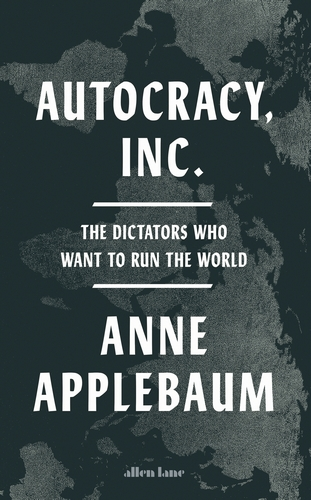
Prediction
Decision Making
Thinking
Leadership
Superforecasting Book Summary
Philip Tetlock
In Superforecasting, Philip Tetlock and Dan Gardner reveal the techniques used by elite forecasters to predict future events with remarkable accuracy, and show how these skills can be cultivated by anyone to make better decisions in an uncertain world.

History
Politics
Philosophy
On Freedom Book Summary
Timothy Snyder
In "On Freedom," Timothy Snyder argues that true freedom is not simply the absence of barriers, but the positive presence of the conditions and capabilities that allow individuals to make meaningful choices, realized through the five interdependent forms of sovereignty, unpredictability, mobility, factuality, and solidarity.
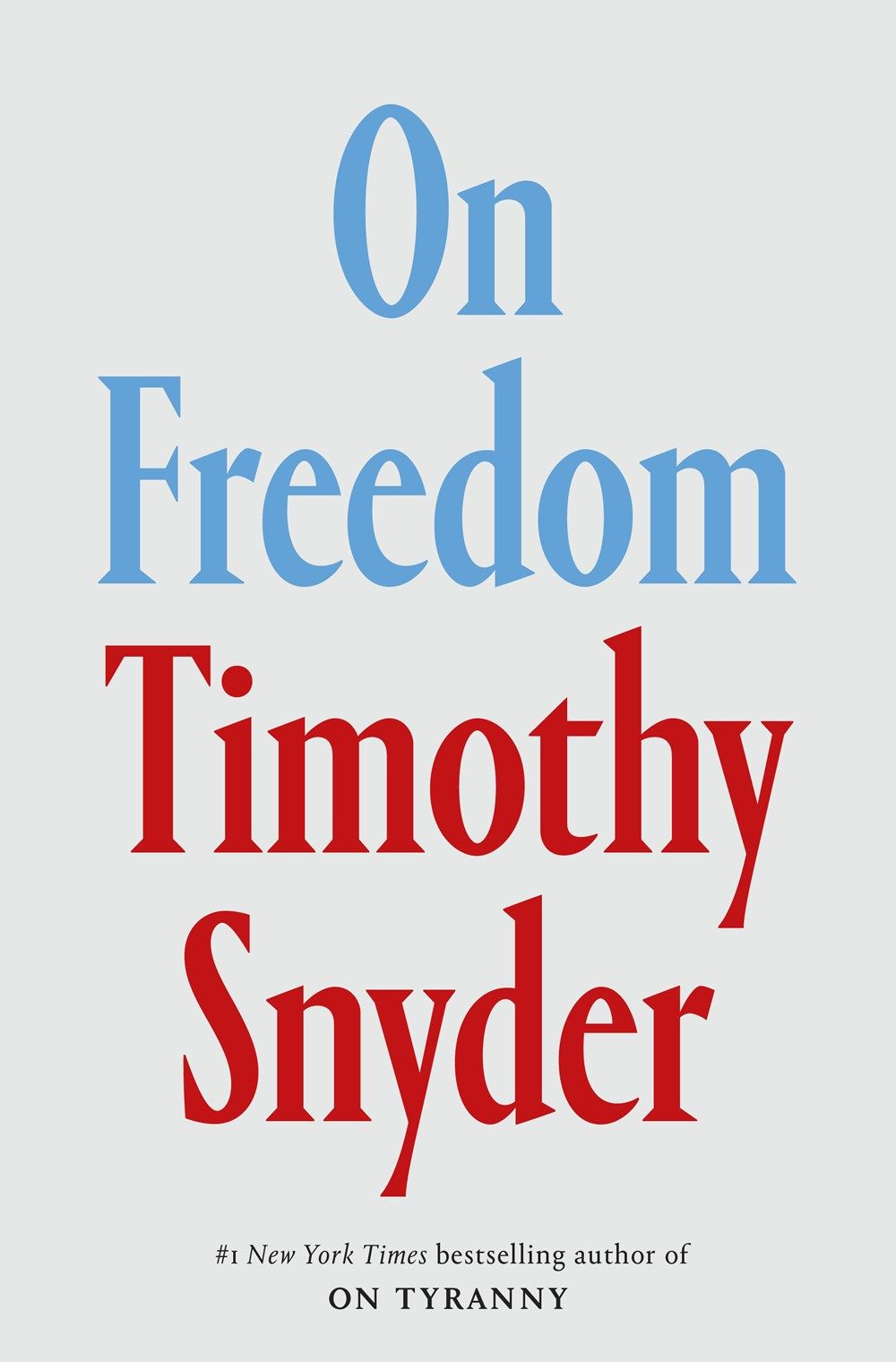
Economics
Society
History
Heuristics
Factulness Book Summary
Hans Rosling
Factfulness by Hans Rosling reveals the ten instincts that distort our perspective on the world, and provides a fact-based framework for understanding global progress and thinking more clearly about the future.
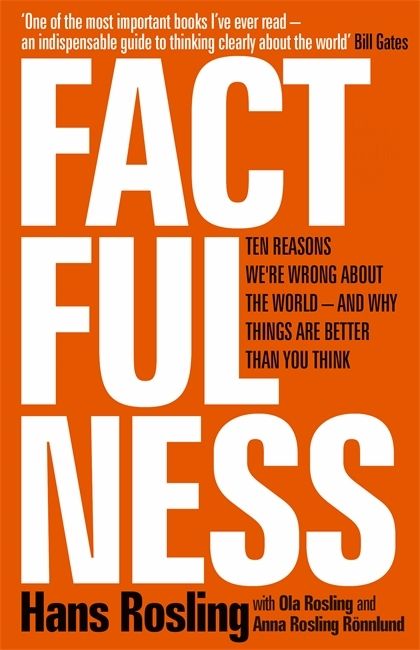
Health
Feminism
Medicine
Politics
I'm Sorry for My Loss Book Summary
Rebecca Little, Colleen Long
"I'm Sorry for Your Loss" is a groundbreaking exploration of the cultural silence, medical myths, and legal quagmires surrounding miscarriage, stillbirth, and abortion in America, weaving together personal stories, historical context, and expert insights to envision a world where no one has to grieve alone.
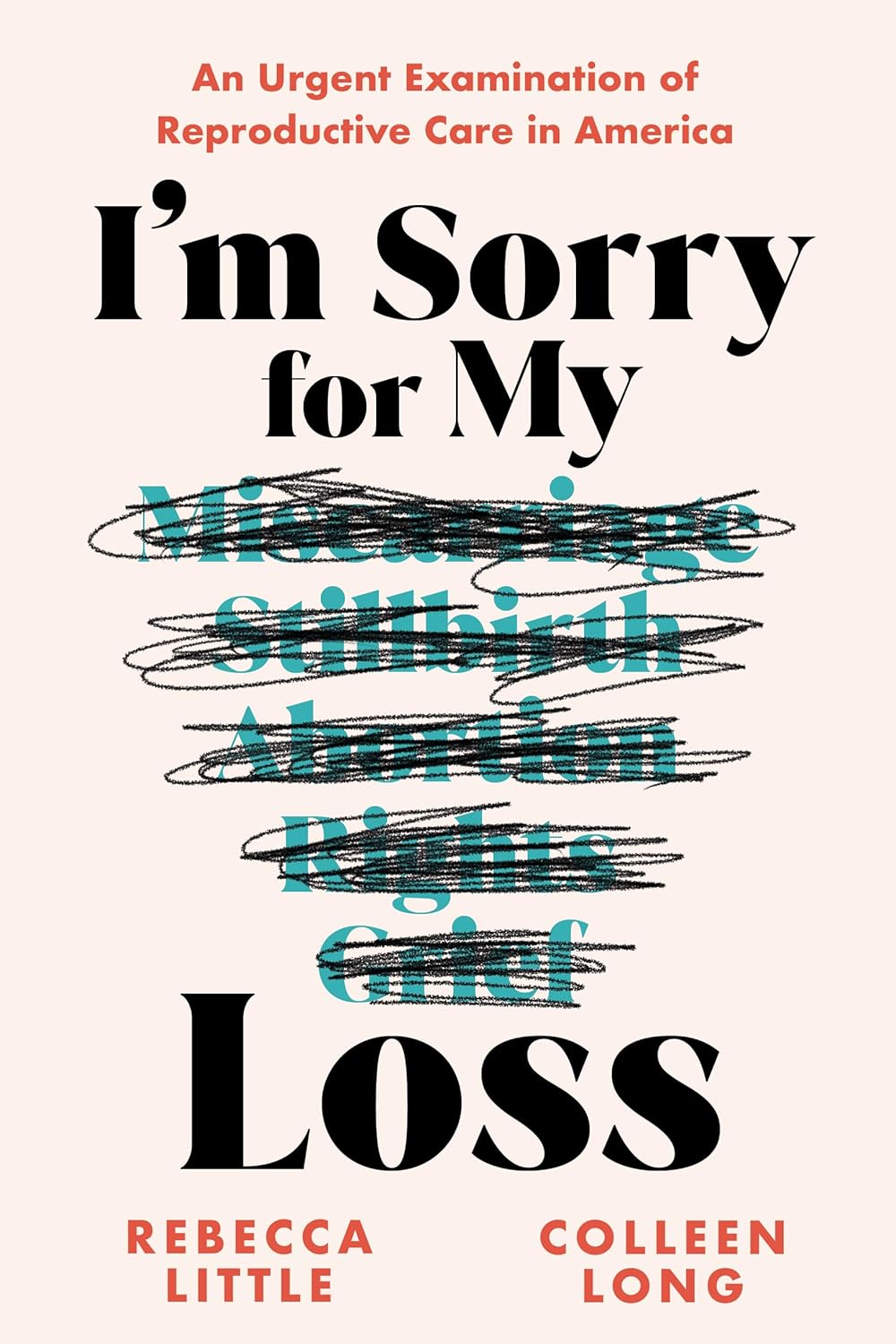
Politics
Economics
Society
Policy
Innovation
Abundance - Book Summary
Ezra Klein, Derek Thompson
Through compelling case studies in housing, energy, government, innovation, and technology deployment, Klein and Thompson argue that our most pressing challenges stem from chosen scarcities rather than natural limits. They outline a framework for building a future with more homes, cleaner energy, better governance, and breakthrough innovations that make life better for everyone.

Sustainability
Climate Change
Economics
Politics
This Changes Everything Book Summary
Naomi Klein
In "This Changes Everything," Naomi Klein argues that the climate crisis challenges us to abandon the core "free market" ideology of our time, restructure the global economy, and remake our political systems - and that in the process, we have the chance to create a safer and more just world.
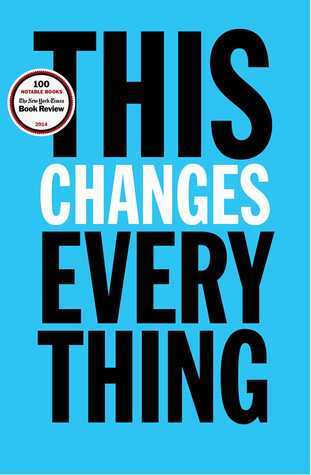
History
Politics
Philosophy
On Tyranny Book Summary
Timothy Snyder
In "On Tyranny," Timothy Snyder draws urgent lessons from the 20th century's bitter experience with tyranny to equip ordinary citizens today with the tools to recognize encroaching authoritarianism and fight back before it's too late.
